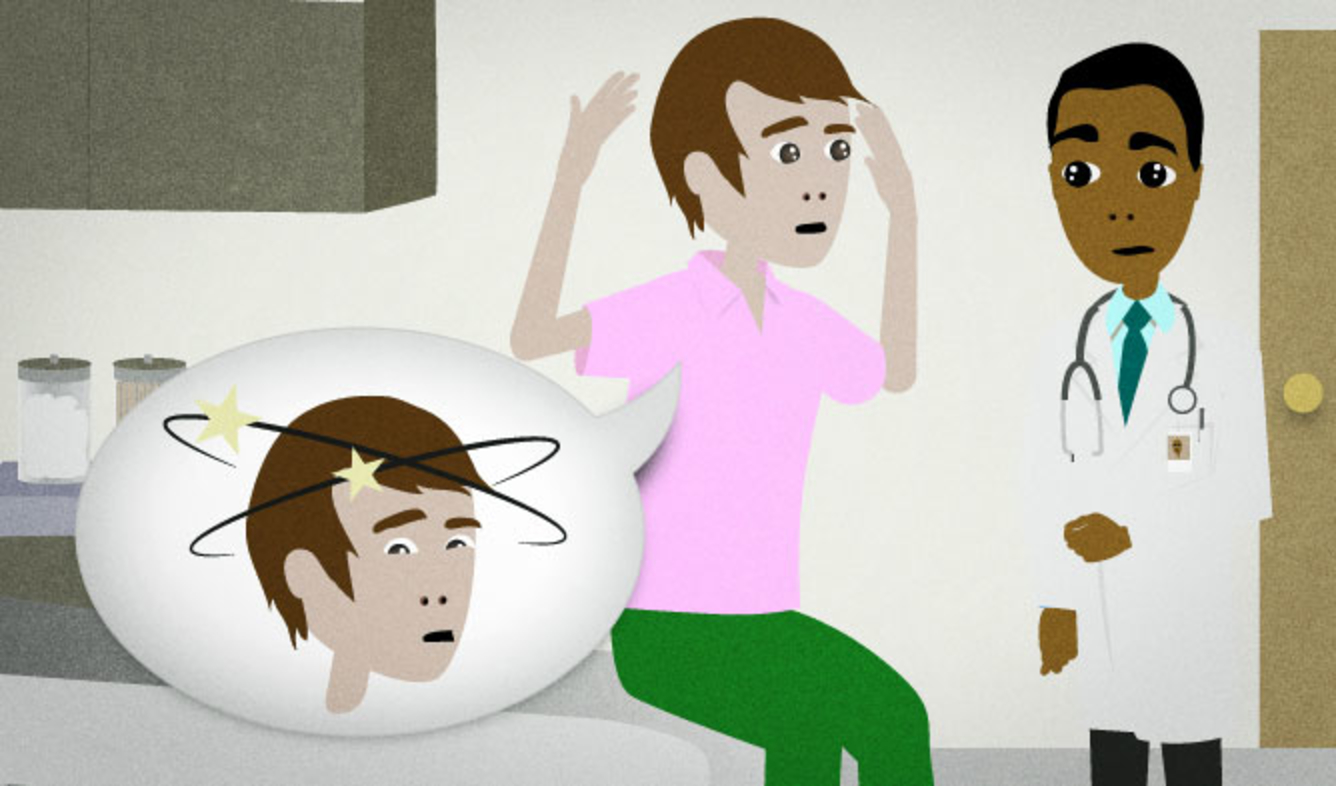“I've been feeling kind of lightheaded lately whenever I stand up.”
You have a strange health problem. It makes you feel a little dizzy. You're describing it to a doctor.
I've been feeling kind of lightheaded lately whenever I stand up.
Want Video and Sound? Follow us on YouTube

(something happens) whenever (someone does something)
Use "whenever" to talk about something that happens again and again in similar situations. For example:
He likes to stop by our office whenever he's in New York.
Individuals should be supported to make their own decisions whenever possible.
You could use "when" in each of these situations, but when you use "whenever" it sounds like it happens almost every time. If you use "when", it sounds like something might happen in that situation, or might not. So, for example:
I get a sharp pain in my shoulder when I raise my arm.
If you say this, the doctor might ask, "Does it hurt every time?" But if you used "whenever", the doctor would already know that it was every time.
I've been (adjective) lately
This is a way to describe how you've acted for a few days or months that's different from how you were in the past. When you describe yourself in this way, it sounds like this is a characteristic that isn't usual for you.
You can use a simple adjective like "tired":
I've been pretty tired lately.
Or you can use a longer phrase like "in my own little world" in this example:
Sorry, I've kind of been in my own little world lately.
The phrase you use should be similar to an adjective, meaning that it should describe the noun ("I" in this case).
There's a little confusion about the difference between "recently" and "lately". "Lately" is more appropriate for continuing situations, while "recently" is better for events that happened just once, a couple of times, or that have continued but are finished now:
Have you been going to the gym a lot lately? You look great!
I ran into Stacy recently at the Food Emporium.
(someone) feels lightheaded
When you feel "lightheaded", you feel dizzy, like you might faint. Your vision might turn dark for a moment.
The difference between "lightheadedness" and "dizziness" is that we call a more long-lasting feeling of being off balance "feeling dizzy". Lightheadedness usually just lasts for a moment. You might "feel lightheaded" if you stand up too fast, or after exercising too hard.
